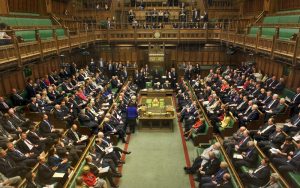
University of Reading academics should remain engaged in public debates, even while elections are imminent in the UK, says Professor Steve Mithen, Deputy Vice-Chancellor.
This week there are a number of local elections across the UK. This means that government departments and agencies are subject to the so-called rules of ‘purdah’, or pre-election period, restricting what can be discussed in public by civil servants.
Purdah rules are designed to prevent politically neutral government agencies from working to influence, or being perceived to influence, free and fair democratic elections.
However, in recent years some government-funded bodies, such as research councils, may have issued conflicting guidance on how purdah rules should be applied to academic research. In the past, there have been suggestions that researchers should avoid speaking publicly on issues that could be politically relevant in elections.
This led to calls for clarification from the Cabinet Office, the body that oversees purdah rules.
I am delighted that for the current election period, revised guidance has been issued that makes it clear that academics should not feel unable to discuss matters openly in the run-up to elections.
Any colleagues who have a role specifically with government departments or agencies should, of course, check with relevant contacts if they are in any doubt about how they should behave in that role.
For the avoidance of any doubt, as an academic at the University of Reading, you are not bound by rules of purdah. In fact, I would positively encourage colleagues to engage openly in public debates which relate to their areas of expertise, if in doing so they are contributing to raising public understanding and awareness of relevant issues. This is entirely in keeping with our individual roles as academics and our collective mission as a University.
Professor Steve Mithen, Deputy Vice-Chancellor and Pro-Vice-Chancellor for Research and Innovation
Parliamentary copyright images are reproduced with the permission of Parliament
